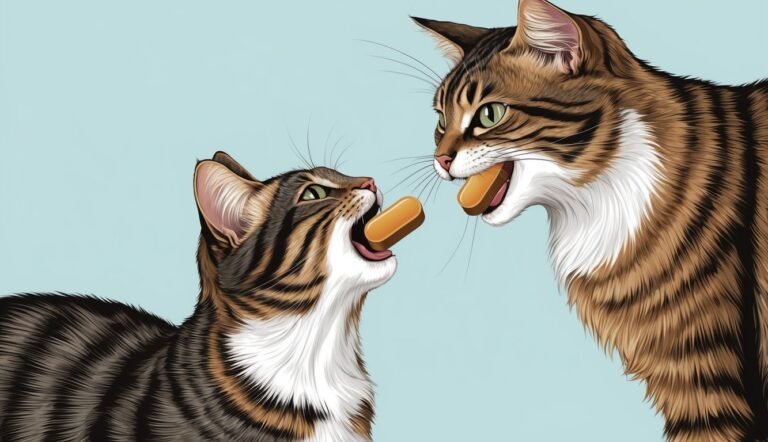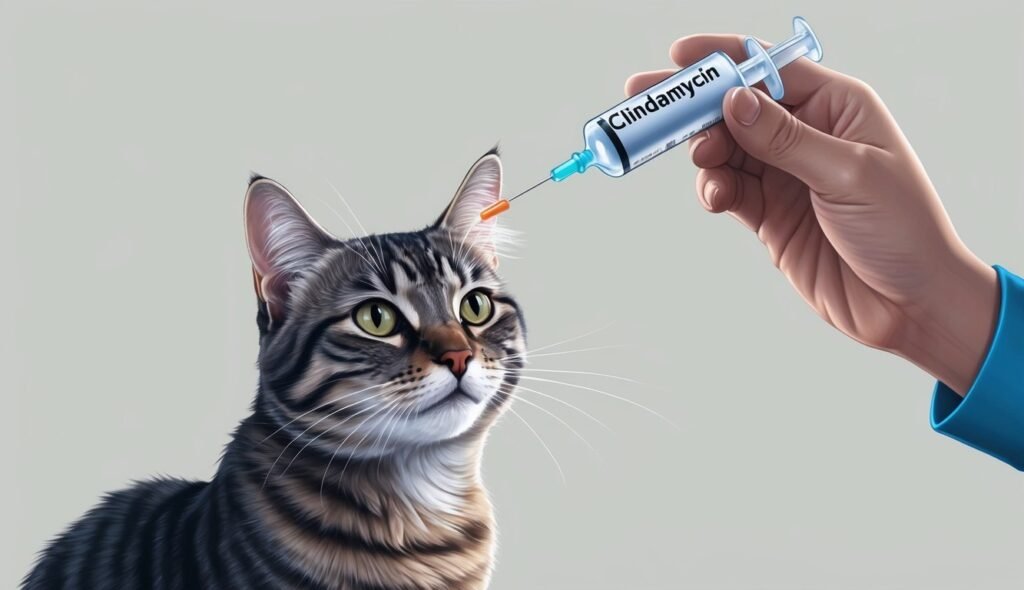Heartworm disease poses a significant risk to cats.
Prevention is essential since there is no FDA-approved treatment available for infected felines.
Using effective heartworm medicine regularly is crucial to keep your cat safe.
Understanding how this disease develops and recognizing its signs can empower you to take proactive steps in safeguarding your pet’s health.
While heartworms primarily affect dogs, cats can suffer from severe complications due to this dangerous parasite.
You might notice subtle signs in your cat, such as a loss of appetite or occasional coughing.
Being aware of these symptoms can lead to earlier detection.
In addition, knowing the right preventative medications can make all the difference in maintaining your furry friend’s wellbeing.
Arming yourself with the right information about heartworm medicine for cats ensures you can enjoy many healthy years with your companion.
By prioritizing prevention and being vigilant about your cat’s health, you can effectively minimize the risks associated with heartworm disease.
Key Takeaways
- Heartworm disease in cats can be prevented with effective medications.
- Recognizing early symptoms is key to ensuring timely veterinary care.
- Regular prevention efforts are vital since treatment options for heartworm are limited in cats.
Understanding Heartworm Disease in Cats
Heartworm disease is a serious condition in cats, caused by parasitic worms that can lead to severe health problems.
Understanding the life cycle of heartworms and how they transmit is essential for effective prevention and management.
The Life Cycle of Heartworms
Heartworms begin their life cycle in the body of an infected host, typically dogs.
Adult heartworms live in the heart and lungs, producing microscopic larvae called microfilariae.
These larvae enter the bloodstream and can be transmitted to cats through a mosquito bite.
Once a mosquito bites an infected animal, it ingests these larvae.
Inside the mosquito, the microfilariae undergo further development, becoming infective larvae.
When the mosquito bites a cat, the larvae are injected into its bloodstream.
This can initiate infection in your cat, even from a small number of worms.
The process can take several months, and if left untreated, it can lead to severe health issues.
Modes of Transmission
Mosquitoes are the primary vectors for heartworm transmission.
They pick up the larvae from an infected host and then transfer them to another animal when they bite.
It only takes one bite from an infected mosquito for your cat to potentially contract heartworm disease.
Although heartworm disease is more common in dogs, cats are not immune.
In fact, cats may experience severe reactions even with a small number of heartworms.
It’s important to note that heartworms cannot be directly transmitted from one cat to another.
Preventive measures, including medications recommended by your veterinarian, are key to protecting your cat from this dangerous parasite.
Signs and Symptoms of Heartworm in Cats
Recognizing the signs and symptoms of heartworm disease in cats is crucial for early intervention.
Symptoms can range from subtle to quite severe, impacting your cat’s respiratory health and overall well-being.
Respiratory Issues and HARD
One of the primary concerns with heartworm infection is its effect on your cat’s lungs.
This condition, known as Heartworm Associated Respiratory Disease (HARD), can lead to chronic respiratory issues.
Common respiratory symptoms include:
- Coughing: A persistent cough may develop as your cat struggles to breathe normally.
- Asthma-like Attacks: You might notice episodes of wheezing or difficulty catching breath.
- Fainting: In severe cases, your cat may faint due to a lack of oxygen.
These symptoms can occur as the adult worms cause inflammation in the lungs, making it essential to monitor your cat’s breathing closely.
Other Common Symptoms
Beyond respiratory issues, heartworm in cats manifests through various other signs.
Keep an eye out for these common symptoms:
- Weight Loss: Unexplained loss of appetite can lead to noticeable weight decline.
- Vomiting: Periodic vomiting may occur, adding to your cat’s overall discomfort.
- Physical Weakness: Difficulty walking or playing may be apparent as the disease progresses.
The combination of these symptoms can indicate heartworm disease, so taking your cat to the vet for an evaluation is vital if you notice any of them.
Early detection and treatment are key to managing this serious health issue.
Diagnosis and Detection
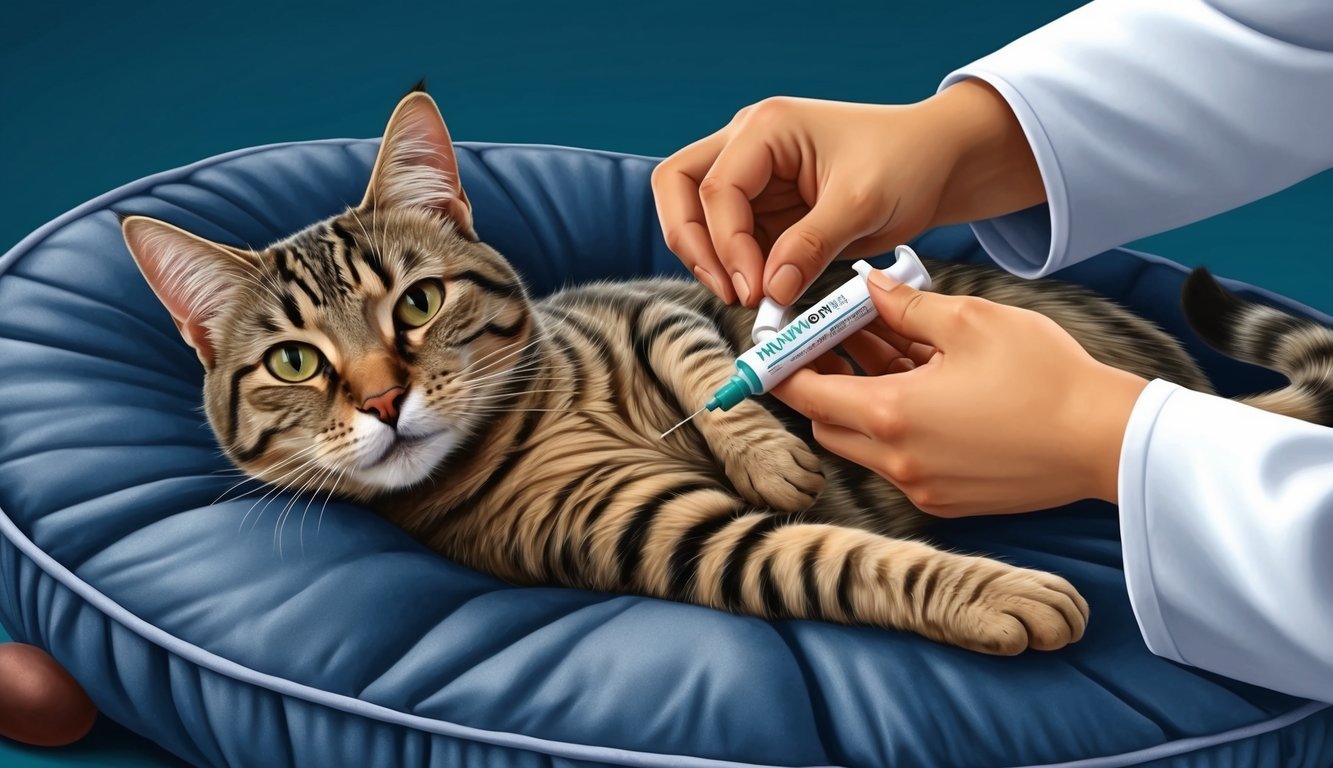
Identifying heartworm disease in cats relies on a combination of blood tests and imaging techniques.
These methods help reveal the presence of heartworms and the extent of any associated damage.
Understanding the available options will assist you in making informed decisions about your cat’s health.
Blood Tests
Blood tests are essential for diagnosing heartworm infection.
Two primary tests you should be aware of are the antigen test and the antibody test.
The antigen test detects proteins produced by adult female heartworms.
A positive result confirms infection, but it’s important to remember that this test is not foolproof.
On the other hand, the antibody test looks for antibodies produced by your cat’s immune system in response to heartworm larvae.
Both tests may lead to conflicting results, particularly if your cat has few worms present.
Multiple tests may be necessary to ensure accuracy.
Symptoms, such as coughing or lethargy, can prompt your veterinarian to recommend these tests.
Imaging Techniques
Imaging techniques help assess the extent of heartworm disease and any damage caused.
Chest x-rays are commonly used to visualize the heart and lungs.
They can reveal enlargement of the heart or the presence of fluid in the lungs, which indicates possible complications.
Ultrasound imaging provides a more detailed look at your cat’s heart.
It can help identify heartworms and assess their impact on heart function.
This technique is particularly useful in evaluating how advanced the disease is.
Combining these imaging methods with blood tests offers a comprehensive view of your cat’s condition, guiding effective treatment and management strategies.
Prevention of Heartworm Disease
Preventing heartworm disease is critical for your cat’s health.
The right heartworm preventatives, along with lifestyle adjustments, can help minimize the risk of exposure to this potentially serious condition.
Heartworm Preventatives
You should consider monthly heartworm preventatives for your cat, especially if they spend time outdoors.
These medications, prescribed by a veterinarian, typically contain active ingredients like ivermectin or Milbemycin oxime.
Popular Options Include:
- Intercepter: Protects against heartworms and internal parasites like hookworms.
- Heartgard: Comes in chewable form and is effective for kittens as young as six weeks.
It’s key to administer these medicines regularly, as they work by preventing the larvae from maturing into adult worms after a mosquito bite.
Prevention is cost-effective compared to potential treatment options, which are limited for cats.
Lifestyle and Environmental Changes
In addition to medication, altering your cat’s environment can aid prevention.
Reducing mosquito exposure is vital, as these insects transmit heartworm larvae.
Here are a few tips:
- Keep windows and doors screened: This helps to block mosquitoes from entering your home.
- Avoid standing water: Mosquitoes breed in stagnant water, so eliminate any sources around your property.
Consider keeping your cat indoors during peak mosquito activity, typically dawn and dusk.
These small adjustments can greatly decrease the likelihood of heartworm transmission.
Always work closely with your veterinarian to ensure your preventative strategy is tailored to your cat’s specific needs.
Treatment Options for Feline Heartworm Disease
When it comes to treating feline heartworm disease, it’s crucial to understand the options available.
You can choose from specific medications or focus on supportive care to help your cat manage symptoms and recover.
Medication Approaches
Medications for heartworm disease in cats are limited.
The standard approach often involves antiparasitic treatments, but choosing the right one is vital.
Melarsomine, while effective, can cause serious side effects like acute pulmonary failure.
Due to these risks, it’s typically not recommended for cats.
Instead, treatments mainly focus on controlling symptoms. Revolution© Plus, which contains selamectin and sarolaner, can help eliminate heartworm larvae.
Always consult your veterinarian for the right dosage based on your cat’s weight and condition.
Supportive Care and Monitoring
Supportive care is essential in managing heartworm disease.
Monitoring your cat’s health, especially lung function, is a priority.
Watch for signs of lung inflammation or heart failure, which can occur even with a low number of worms.
Providing a calm, stress-free environment can make a difference.
Reducing physical activity helps alleviate strain on your cat’s heart and lungs.
Always keep your veterinarian informed about any changes in your cat’s behavior or health to ensure appropriate interventions can be made as needed.
Considerations for Heartworm Medication
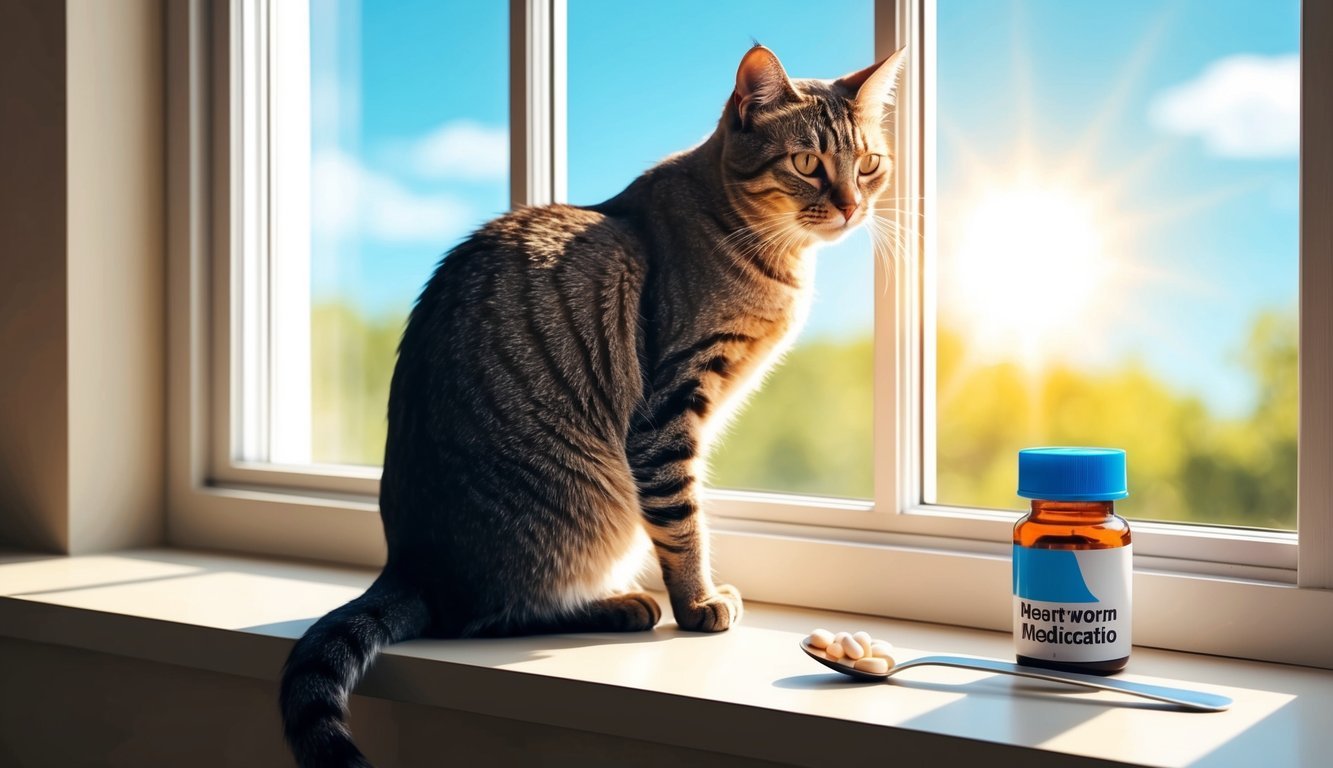
When dealing with heartworm medication for your cat, it’s crucial to understand both the safety and effectiveness of the options available.
You also need to be aware of the various medications suited for heartworm prevention and treatment.
Safety and Efficacy
Safety is your top priority when selecting a heartworm medication. Ivermectin and milbemycin are common active ingredients in many products, and they have strong safety records for dogs.
However, cats can be more sensitive, making it essential to choose products specifically formulated for them, like Interceptor or Heartgard.
When administered properly, these medications effectively prevent heartworm infection.
For example, the Interceptor chewable tablet is designed for easy administration and offers a reliable preventive measure.
Always consult your veterinarian to ensure you choose the safest and most effective option tailored to your cat’s needs.
Different Types of Medication
There are various heartworm medications available, each with its own method of administration and active ingredients.
-
Topical Solutions: These include products like Revolution Plus, which you apply to your cat’s skin. They protect against not only heartworms but also fleas and ticks.
-
Oral Medications: Options like Heartgard and Interceptor can be given as a chewable tablet. Each product varies by weight range, so ensure you choose the correct dosage for your cat.
Always read the labels carefully and follow your vet’s guidance for dosage schedules.
With the right prevention, you can keep your cat safe from serious complications associated with heartworm disease.
Heartworm Disease in Other Animals
Heartworm disease does not only affect cats; it poses significant risks to various animal species, particularly dogs and some wild populations.
The impact of heartworms can vary considerably among different animals.
Disease Impact on Different Species
Dogs are the primary hosts for heartworms, specifically Dirofilaria immitis.
They can harbor numerous adult worms, leading to severe health issues like heart failure and lung disease.
Symptoms include persistent coughing, lethargy, and weight loss.
Ferrets can also get infected, though cases are rare.
The symptoms often mirror those in dogs, including coughing and difficulty breathing.
As with dogs, prompt treatment is crucial.
Wild canids such as coyotes, foxes, and wolves are susceptible to heartworm as well.
They can serve as reservoirs for the disease, maintaining the lifecycle of heartworms in nature.
While infections in these animals might not be evident, they can still transmit the disease.
In summary, various species encounter unique challenges from heartworm disease.
Understanding these impacts helps in managing and preventing its spread effectively.
Supporting Feline Health

Maintaining your cat’s health is essential, especially when it comes to preventing conditions like feline heartworm disease.
Regular veterinary care and a proper diet are key components in promoting your cat’s well-being.
Routine Veterinary Care
Regular check-ups with your veterinarian help catch health issues early.
Your vet will assess your cat for signs of lethargy, unusual weight loss, or respiratory problems that could indicate conditions such as feline asthma or heartworm disease.
Vaccinations and preventive medications play a critical role in your cat’s health.
Your vet might recommend heartworm prevention, particularly if you live in areas prone to these parasites.
This includes medications that can prevent infection before it begins.
Additionally, routine blood tests can reveal underlying health issues.
Early detection allows for timely intervention, which is crucial for conditions like heartworm where symptoms may not be apparent initially.
Diet and Nutrition
A balanced diet is vital for your cat’s immune system and overall health.
Nutritional needs can vary based on age, weight, and health status.
Consult with your veterinarian to select food that meets your cat’s specific requirements.
High-quality protein sources help maintain muscle mass and energy levels, while healthy fats support skin and coat health.
Watch for any signs of dietary intolerance, such as diarrhea or vomiting, which may indicate a need for dietary adjustments.
Consider incorporating supplements if your cat has specific health issues.
For example, omega-3 fatty acids can be beneficial for cats with inflammatory conditions, including those suffering from asthma.
Always consult your vet before adding supplements to your cat’s diet to ensure safety and efficacy.
Frequently Asked Questions
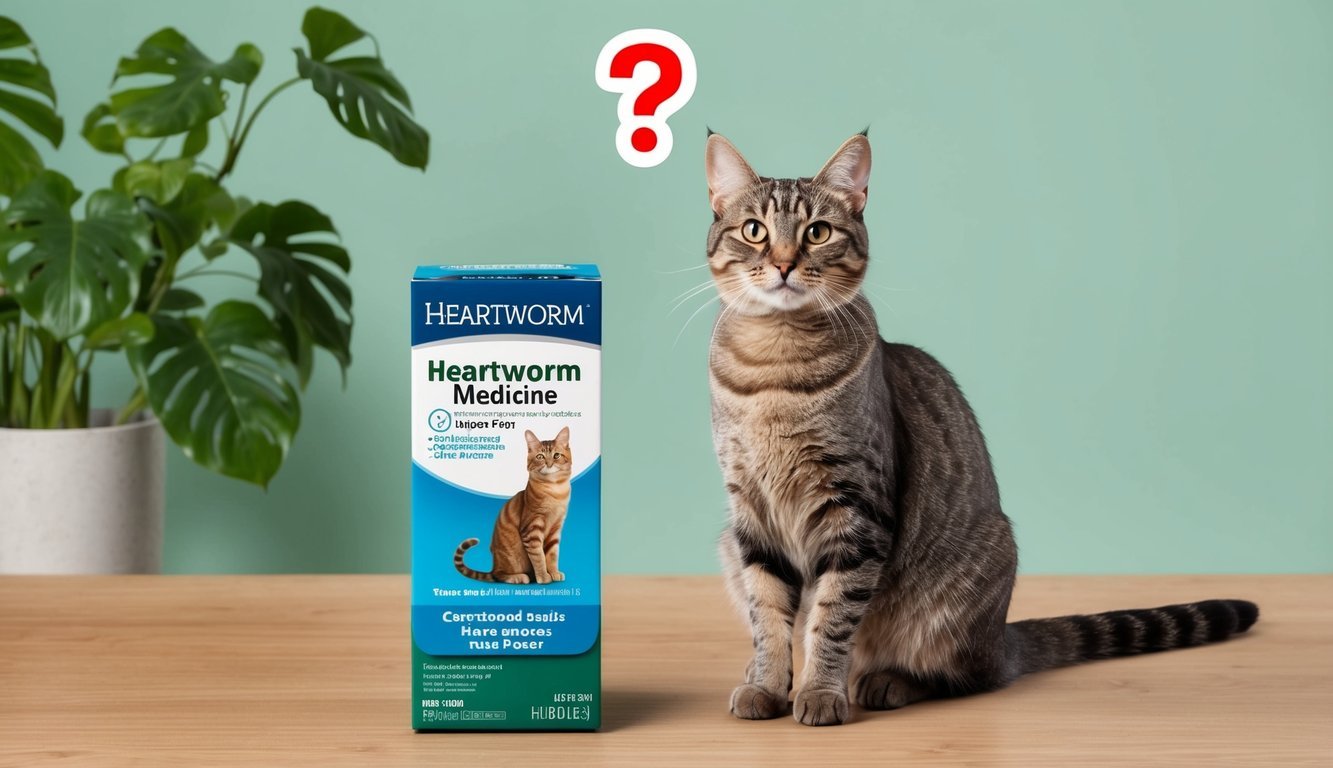
Heartworm disease can be a serious concern for cats, and many pet owners have questions about its symptoms, prevention, and treatment options.
Here are some common queries answered.
What are the initial symptoms indicating heartworm presence in cats?
Early signs of heartworm disease in cats can be subtle and may include coughing, lethargy, and decreased appetite.
You might notice your cat having difficulty breathing or experiencing vomiting as the disease progresses.
These symptoms can easily be mistaken for other illnesses, making it crucial to consult a veterinarian if you suspect heartworm.
What options are available for the prevention of heartworm in felines?
Preventative care for heartworm in cats typically involves medication administered monthly.
Topical solutions like Revolution Plus and oral medications are popular choices.
These products are designed to keep your cat safe from heartworms as well as other parasites like fleas and ticks.
Can you obtain heartworm medication for cats without a veterinarian’s prescription?
In most cases, heartworm prevention medication requires a prescription from a veterinarian.
This ensures that your cat receives the appropriate medication based on its weight and health status.
Always discuss with your veterinarian the best options for your pet.
Is heartworm treatment possible in cats, and why might it be challenging?
Treating heartworm in cats is complex and may not be advisable due to the high risk of severe side effects from medication designed for dogs.
Unlike dogs, there is no FDA-approved treatment for heartworm in cats, which makes prevention even more critical.
What are the most effective heartworm preventatives for cats currently on the market?
Revolution Plus is often mentioned as one of the best options, as it prevents heartworms along with other parasites.
Other effective options include Heartgard and Bravecto, which come in different formulations based on your cat’s weight.
Consulting your veterinarian can help you choose the best product for your cat.
How do cats contract heartworm disease in the first place?
Cats primarily get heartworm through mosquito bites.
When a mosquito carrying heartworm larvae bites your cat, the larvae enter the bloodstream.
Even indoor cats are at risk if mosquitoes get inside.
This makes it essential to keep them protected year-round.

